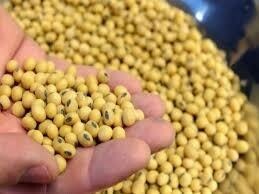BUENOS AIRES: Argentine farmers’ soybean sales to commercial buyers stalled in June, the head of the country’s crushing and export chamber (CIARA-CEC) told Reuters, falling 45% from May’s sales as a weakening peso in informal exchange markets led farmers to hold onto their stocks of the oilseed.
The South American country is one of the world’s top soy suppliers and jostles with Brazil as the No. 1 exporter for processed soyoil and soy meal, which are used in vegetable oil and animal feed. June full-month soybean sales figures have not been previously reported. Reduced commercial soybean supplies for processing indicate a likely drop-off in Argentina’s subsequent exports of soyoil and soymeal.
In an interview late on Thursday, CIARA-CEC president Gustavo Idigoras said soybean sales were around 3.8 million metric tons this month, down sharply from May when farmers sped up sales to earn cash to cover expenses for wheat planting.
Argentina is in a deep recession and has depleted central bank reserves and high inflation, making it desperate for foreign currency income from soy, its top export. However, a weakening of the peso currency in popular, informal exchange markets has seen rates there diverge from the central-bank-controlled official rate.
That means exporters who largely use the official rate to turn their dollars into pesos end up losing out, encouraging hoarding of soybean stocks. “When the gap between the official dollar rate, (informal) dollars and the black-market dollar begins to grow, it decreases and almost paralyzes the grain-trading market in Argentina,” Idigoras told Reuters. “It’s just natural.”
There is now a gap of 45% between the value of the official peso at 912 per dollar, and the informal one, of about 1,320 pesos per dollar. That gap has widened from around 15%-20% in May.

Source: Brecorder




























